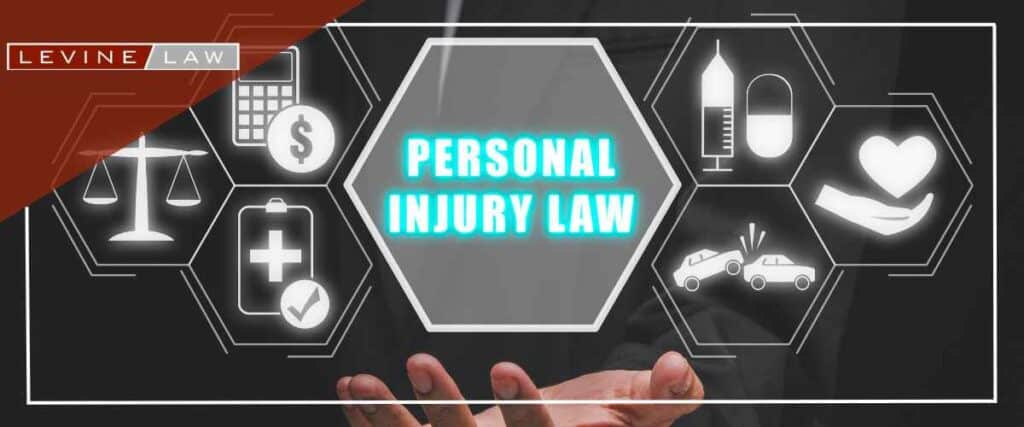Few people today don’t have a digital presence. From social media accounts to online shopping and banking, we rely on the Internet for countless aspects of our daily lives.
However, many may not realize that online activity can significantly impact legal cases, especially concerning personal injury claims.
At Levine Law, our Denver personal injury attorneys have seen firsthand how online activity can influence the outcome of a case. We encourage you to learn more about this topic and how your online presence and actions can affect your injury claim in Denver.
Whether you’re seeking compensation for a car accident, slip-and-fall incident, or other type of personal injury, it’s important to understand the potential implications of your online activity.
We understand that dealing with a personal injury claim can be overwhelming, and we are here to help you navigate the legal process.
Social Media Posts as Evidence
Colorado law permits using social media content as admissible evidence under certain conditions. This means legal professionals can use posts, photos, and comments on platforms like Facebook, Twitter, and Instagram. They can be used to establish a claimant’s physical condition, activities, and emotional well-being before and after a personal injury incident.
For example, a claimant alleging severe physical limitations post-accident can have their case weakened if recent social media posts depict them engaging in physical activities contradicting these claims.
Stay mindful of your online presence, as seemingly innocent posts can significantly influence the perception of your case in the eyes of the court.
The Potential Impact of Public Perception
The impact of public perception is often significant in Denver injury cases. What you post online can shape how the public sees you and your case.
For example, if someone involved in a lawsuit shares details about their case on social media, this can color public opinion. This perception might even reach jurors, influencing their decisions.
Take time to consider how your online actions might be seen by others, particularly when those views could affect the outcome of your legal matters. Being aware of the potential impact of online activity on public perception can help you avoid issues or complexities for your claim.
Privacy Concerns Related to Social Media Posts
Privacy concerns are significant today, especially if you have filed a personal injury claim. Information you share online, whether personal photos, location check-ins, or casual comments, might be viewed by people you wouldn’t expect.
For example, those on the other side of your case may see what you post. Lawyers and insurance companies can also examine your online profiles for details that could challenge the credibility of your claim.
This invasion into your digital life can feel unsettling and has real implications for the privacy and integrity of your injury case. You must carefully consider what you share online, understanding that your digital footprint can become part of your legal proceedings.
Inconsistent Statements Posted Online
If what you say in court doesn’t match what you post online, it can make it hard for people to believe your story. For instance, if you tell the court you were hurt badly in an accident but then post pictures of yourself going on hikes or lifting something heavy, this clash of stories can make their case weaker.
Lawyers will look for these mismatches, as they can significantly affect the outcome of your case. You must be consistent with what you say and what you post online.
If you are unsure what to post, stay off social media until your case ends. You can also speak to your Denver injury attorney for advice about what to post and leave off social media.
The Impact of Social Media on Injury Case Damage Assessment
The damage assessment process involves your attorney, insurers, and others in evaluating the damages you requested in your personal injury claim. This includes things like physical limitations or emotional distress.
The assessment process involves looking at medical records, police reports, and your online activity.
The insurers or legal representation for the potentially at-fault party want to ensure they are not paying for damages that are not true. For example, if you claim you were seriously injured in a car accident that limits your daily activities, seeing posts on social media of you playing sports or engaging in other physical tasks can be a red flag. It can also be used as proof that you are not seriously injured.
Inconsistencies like this can lead insurers to question the severity of the injuries claimed and adjust their damage assessments accordingly. If you file a personal injury claim, you must undertand the impact of your online footprint.
Everything from fitness app data to social media posts can significantly affect how damages are evaluated in your case. When you file a personal injury lawsuit, you must be mindful of online activity and its potential to affect case outcomes.
Navigating Your Online Footprint in Personal Injury Cases
In the modern, connected world, your digital footprint can significantly impact your Denver personal injury claim.
From impacting public perception and jury opinions to influencing the privacy and integrity of your case, what you share online matters. Inconsistent statements between your court testimonies and social media posts can weaken your credibility, while your online activities might be used to assess the damage claims you make.
Stay aware of your online presence, understanding that each post, comment, or photo could be scrutinized. Being cautious and consistent with your online activity is not only advisable but essential for safeguarding the outcome of your legal matters.
Our personal injury lawyers in Denver are here to help if you need assistance with your claim. Contact our office today to learn more.















